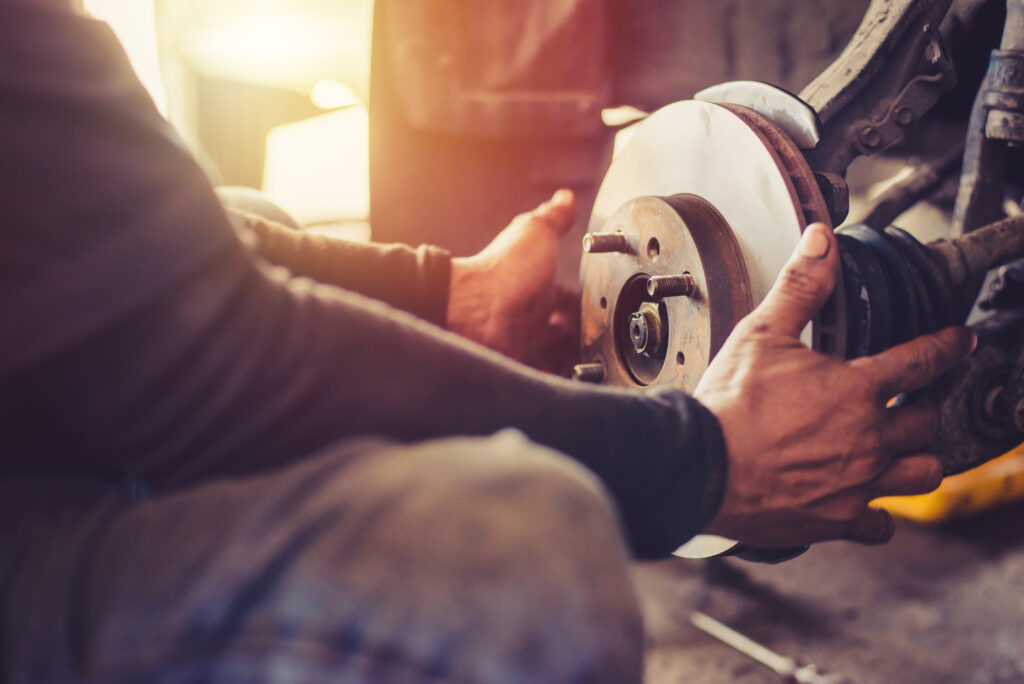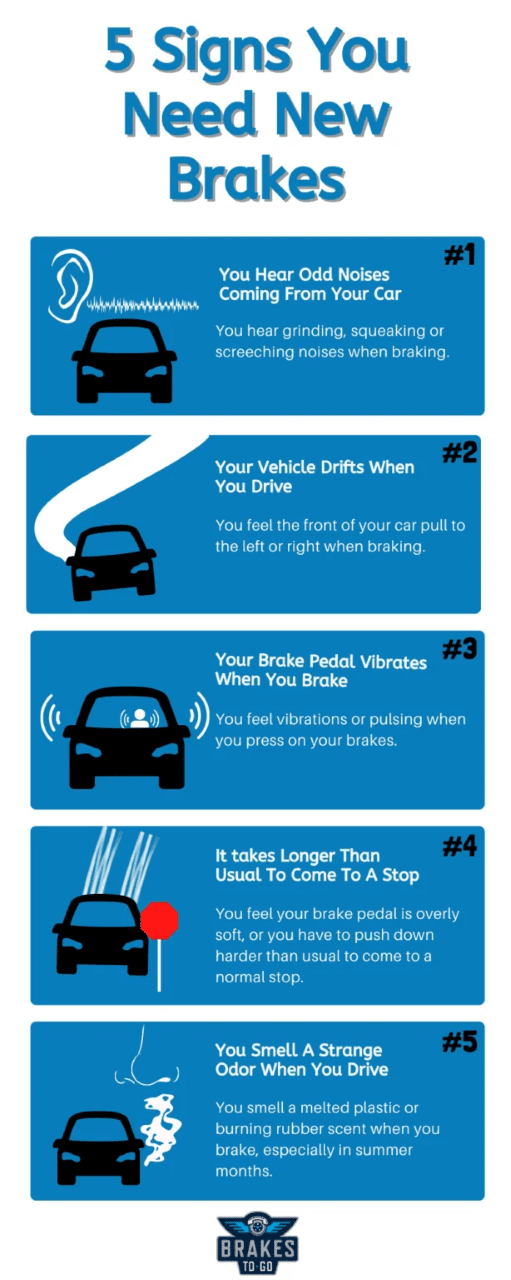With Texas temperatures on the rise and summer just around the corner, your car care is important now more than ever.
After coming off the cooler months, it’s especially crucial for Texans, especially newer drivers, to make sure their brakes are healthy and can perform effectively in high temperatures. During the summer months, the heat that is already created in the braking system can become more profound, making it difficult for brake temperatures to regulate.
To prevent your braking system from losing its effectiveness or failing entirely, be on the lookout for the five most common indicators that your vehicle needs new brakes:
1. Odd Noises Coming From Your Vehicle
Do you hear squeaking, grinding, or pieces of metal rubbing together while driving? If the answer is yes, your braking system might be in need of repair. If your vehicle is making squeaking noises while using your brakes, it could indicate rust, wear and tear, or brake rotor issues. However, the most common reason brakes squeak is due to metal wear indicator, causing the metal indicator to grind against the metal rotor. This often means your brake pads have about 10-15% life left, and it’s time to schedule a replacement.
2. Increased Drifting When Operating the Vehicle
Most people are unaware that brake pads can wear at different rates. In fact, the front brake pads will typically wear out faster than the rear since they handle more momentum transfer. If the nose of your car is pulling towards the right or left while braking, your vehicle could have a stuck caliper, collapsed brake hose, or even brake pad erosion. While brake pad wear isn’t the only potential issue, it’s always important to get the opinion of a professional.
3. Brake Pedal Vibrations or Pulsing
If you feel your brake pedal vibrating or pulsing while using it, your brake pads could be the cause for concern. For Texans and other individuals who drive in hot climates, this usually means your brakes are warped from heat stress. Those who also tend to drive down steep hills or tow something often might face this problem more frequently than most. In this case, you’ll want to get your brakes inspected by a professional.
4. Decreased Response When Braking
Healthy brakes will grab firmly and slow the car down to a comfortable but timely stop. However, brake pedals that feel overly soft or catch too hard while stopping will likely need repair or a full replacement. Additionally, look out for brake pads that sink to the floor, which could indicate a hydraulic system leakage. On the other hand, a stiffened brake pedal likely means you have a faulty brake booster. If you’re not sure which one you’re dealing with, consult a certified brake technician near you.
5. Burning Rubber Odors
Do you smell something funky coming from the AC vents or outside your vehicle? Melted plastic or burning rubber odors could be the result of overheated brake pads or rotors, which can become increasingly common during hot summer months. To investigate the issue, place your hand a couple of inches away from each wheel and observe if there’s excessive heat coming from one wheel over the others. This could be the sign of a locked-up brake capiler, which must be repaired right away.
Protect Your Brakes From the Texas Heat This Summer
Investigating the root of your brake problems can be pretty daunting. With Texas temperatures on the rise, the performance of your braking system is critical to ensure you and your passengers’ safety. If you’re having trouble diagnosing the issue, schedule a free inspection with a brake technician to get your car working properly in no time.
This article was written by Jonathan R. Ganther, COO at Brakes to Go Mobile Brake Repair.
As the COO and Co-Founder of Brakes To Go, Ganther directs, supervises, and manages all service operations for the company and takes a hands-on approach to customer service. Brakes To Go provides mobile brake repair services to drivers in major Austin & DFW cities.


